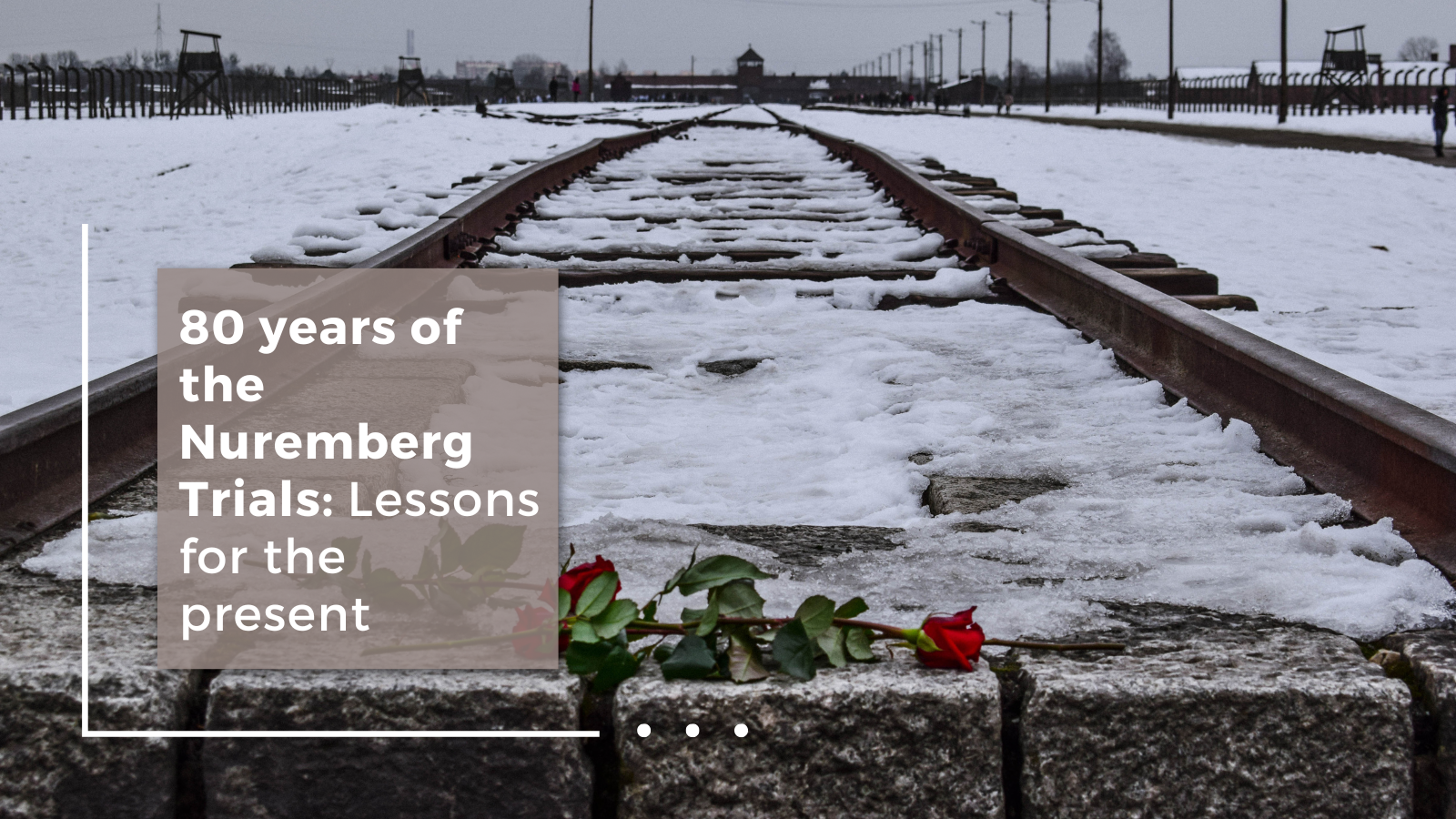
80 years of the Nuremberg Trials: Lessons for the present
This year marks 80 years since the Nuremberg Trials, a decisive moment that marked a turning point in the history of international law and human rights. These trials not only punished the main leaders of the Nazi regime but also laid the foundations of legal principles that continue to guide international justice today.
After the horrors of World War II, the world faced crimes of unprecedented magnitude: mass killings, systematic persecution, and organized violence that threatened the most basic principles of humanity. It was then that international justice took an unprecedented step.
After a long process of high-level negotiations, on August 8, 1945, representatives of the victorious powers—the United States, France, the United Kingdom, and the Soviet Union—met in London to sign the London Agreement for the Establishment of an International Military Tribunal. This document, comprising only seven articles, ordered the creation of a tribunal composed of four judges and their alternates, one from each signatory power, to try European Axis war criminals whose crimes were not geographically specific, while crimes committed in a particular territory would be tried locally.
The tribunal had jurisdiction over:
- Crimes against peace, meaning planning, preparing, initiating, or waging wars of aggression, or a war that constituted a violation of treaties, agreements, or international guarantees, or participating in common plans or conspiracies to achieve any of these objectives.
- War crimes, understood as violations of the laws or customs of war. These violations included murder, mistreatment, or deportation for forced labor or other purposes affecting civilians in occupied territories; mistreatment of prisoners of war or civilians; senseless destruction of cities or villages; or devastation not justified by military necessity.
- Crimes against humanity, such as murder, extermination, enslavement, deportation, and other inhumane acts committed against civilian populations before or during the war; persecution based on political, racial, or religious grounds, whether or not such acts violated the national law of the country where they were committed.
It also established the responsibility of those who led, organized, or incited the execution of these crimes. Official rank or obedience to superior orders did not exempt the accused, although such factors could be considered mitigating. The tribunal could also declare a group or organization criminal, allowing its members to be tried and convicted in the countries where they committed war crimes.
The Nuremberg Trials, held in the German city that gave its name to the Nuremberg Laws, consisted of thirteen trials between 1945 and 1949. The first and most famous trial took place from November 20, 1945, to October 1, 1946, just five months after the signing of the United Nations Charter. The twelve subsequent trials were organized exclusively by the United States.
Twenty-two defendants were selected, representing Nazi diplomatic, economic, political, and military leadership. Figures such as Adolf Hitler, Heinrich Himmler, and Joseph Goebbels were never tried, having committed suicide before the war ended. Later trials included lower-ranking officers, guards and commanders of concentration camps, members of the Einsatzgruppen, and doctors involved in human experiments.
The verdict was issued on October 1, 1946, with twelve death sentences, three life imprisonments, four sentences of 10–20 years, and three acquittals. Ten of the condemned were hanged on October 16, as Göring had committed suicide the day before, and Martin Bormann was sentenced in absentia.
The Nuremberg Tribunal has been criticized for its military nature, established by the victorious powers acting as both judge and party, for not providing a space for victims, and for the legality and retroactive application of some principles.
Nonetheless, its value is undeniable. It established a crucial international legal precedent, trying crimes that, according to collective conscience, could not go unpunished, consolidating individual criminal responsibility and affirming that obedience to superior orders does not exempt responsibility when acts are manifestly illegal—a principle still applied in contemporary international courts.
From this experience emerged a set of principles, known as the Nuremberg Principles, approved in 1950 by the International Law Commission at the request of the UN General Assembly. Key principles include:
- Personal responsibility of individuals.
- Primacy of international law over national law.
- No immunity based on acts of sovereignty.
- No immunity based on superior orders.
- Right to a fair trial.
- Definition of crimes against peace, war crimes, and crimes against humanity.
- Complicity as a crime under international law.
These principles later served as the foundation for the statutes of the international tribunals for former Yugoslavia and Rwanda, as well as for the creation of the International Criminal Court in 1998.
80 years later, the legacy of Nuremberg calls us to reflect on individual responsibility, the protection of human rights, and the need to ensure that impunity never again shields crimes against humanity.
As U.S. prosecutor Robert H. Jackson stated:
“Unless we are willing to renounce all progress in international law, we cannot deny that our era has the right to institute customs and agreements that will become sources of a renewed international law.”
Remembering Nuremberg is not just looking back; it is a call to act in the present, to strengthen international justice, and to preserve memory as a defense of our shared humanity.



